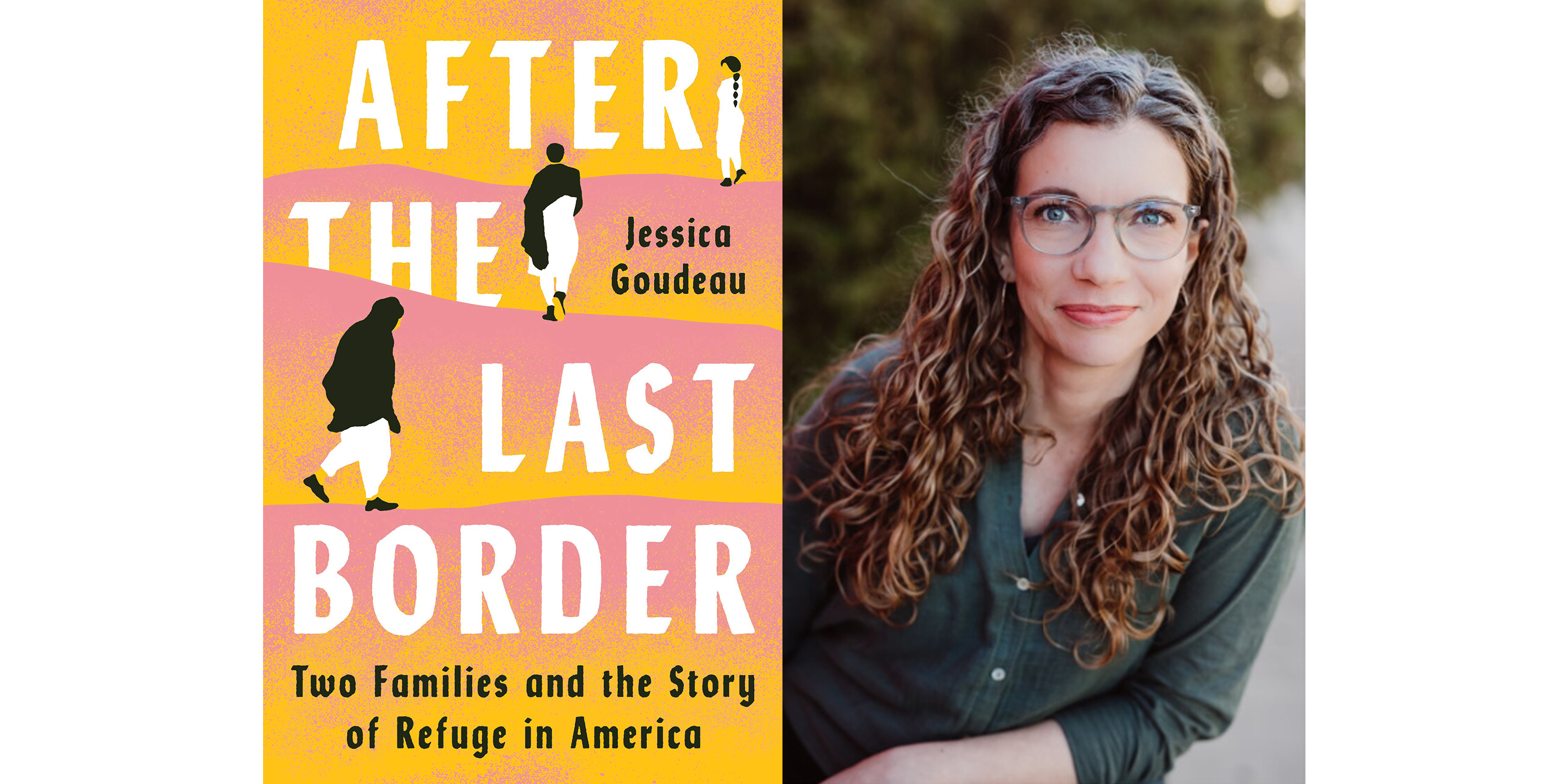WASHINGTON (CNS) -- Not many first-time book authors win prizes for their initial work. But Jessica Goudeau is one of them.
Goudeau won one of the Christopher Awards' prizes in the "books for adults" category this year for her maiden voyage in authoring "After the Last Border: Two Families and the Story of Refuge in America.”
In her nonfiction work, Goudeau examines the cases of two women, separated not only by thousands of miles but also by decades as each finally made her way to the United States, and the struggles and triumphs recorded by each woman once they had made their way to Austin, Texas, where Goudeau herself lives.
"I've been friends with former refugees for over a decade," Goudeau said in a May 24 phone interview with Catholic News Service. "I had no intention of writing about them until the rhetoric shifted the way it did, in 2015. At that time, she added, "the governor of Texas (Greg Abbott) began talking about refugees in ways that have nothing to do with the refugees I know.”
For example, in one instance in the fall of 2015, Abbott, who was elected to his first term in 2014, told the Obama administration that Texas would refuse to resettle Syrian refugees after a terrorist attack in Paris had killed over people. He also demanded -- unsuccessfully -- that private resettlement groups stop helping Syrian refugees move to Texas.
Given the change in tone, Goudeau said, she asked the refugees she knew: "Anybody interested helping me correct that narrative?" From there, she added, "I began writing a bunch of articles, and eventually it led to this book.”
Despite the long border Texas has with Mexico, neither of the two women Goudeau features in "After the Last Border" come from Mexico, or from anywhere in Latin America. Rather, both women came to the United States through the refugee resettlement process: Mu Naw, a Christian from Myanmar, and Hasna, a Muslim from Syria.
Mu Naw fled Myanmar in 1985, when the Asian nation was known as Burma. Hasna fled Syria nearly a decade ago, when Syrian President Bashar Assad used military force to quell calls for his removal following the breakdown of talks aimed at a political resolution to the situation in the wake of the "Arab Spring" movement.
Both Mu Naw and Hasna are pseudonyms, as each woman has kin who are still in danger in their native countries. Conflict in Myanmar flared anew Feb. 1, when the military staged a coup and reasserted control of the country but has faced massive civil disobedience in cities and ethnic rebellion in outlying areas.
Most recently, a May 23 deadly mortar attack in the country claimed the lives of four people sheltering in a Catholic church.
"Part of what I wanted to do was show the stories of people who came at very different times in the U.S.," Goudeau said. Hasna faced more hostility once she came to the country than did Mu Naw, who had spent a decade in a refugee camp.
She added she wanted to show "how necessary refugee resettlement is" by telling these women's stories: "These are people who are being actively persecuted by their own governments and we need to provide safety for them.”
Regardless of when each woman arrived, "moving here is not an instant fix," Goudeau told CNS. But "you can't care more for Mu Naw as a Christian than for Hasna, who is a Muslim ... who is also deserving of a safe place.”
The book sold at auction to Viking in December 2017, and was published last August. Of course, with an ongoing pandemic, publicizing it has been nontraditional, Goudeau said, with lots of virtual events to promote "After the Last Border." The Christopher Award could provide a nice boost.
Goudeau is already at work on a second book, which also has been sold to a publisher. In it, she said, she is going to chart her own family's immigration history. Some of it stretches back 200 years.
"I don't have anybody famous" in the family tree, Goudeau said. "But they knew famous people," including Stephen F. Austin, her city's namesake, who helped settle Anglos in eastern Texas two centuries ago and sometimes is referred to as "the father of Texas.”









